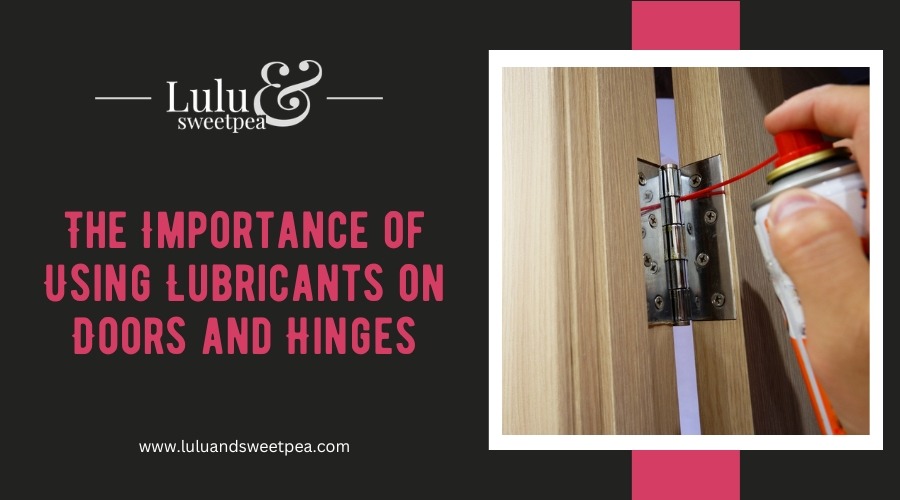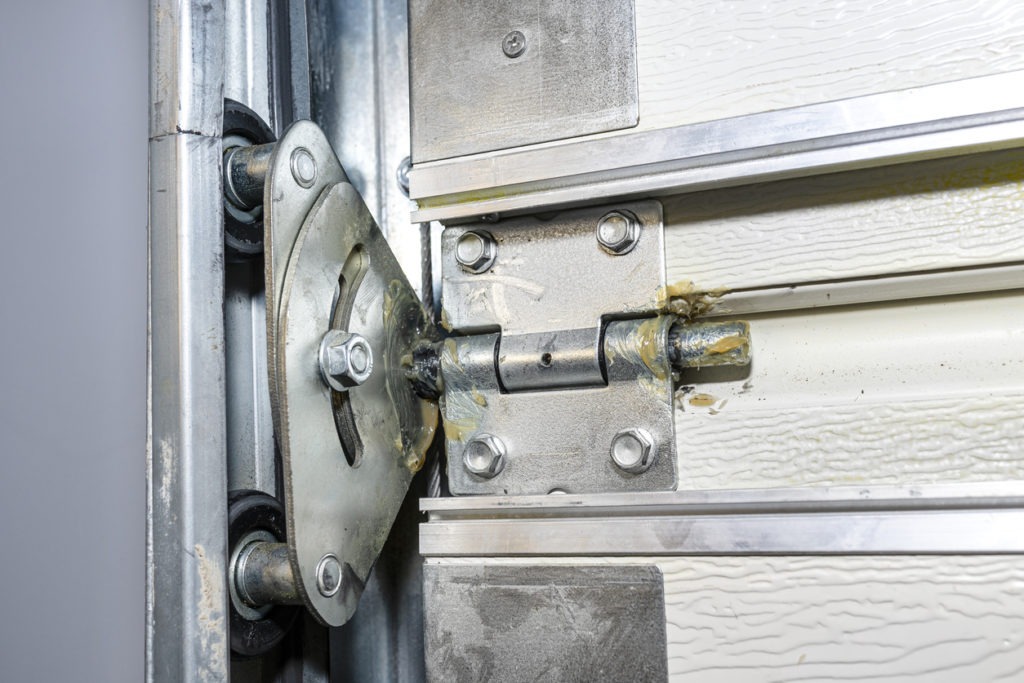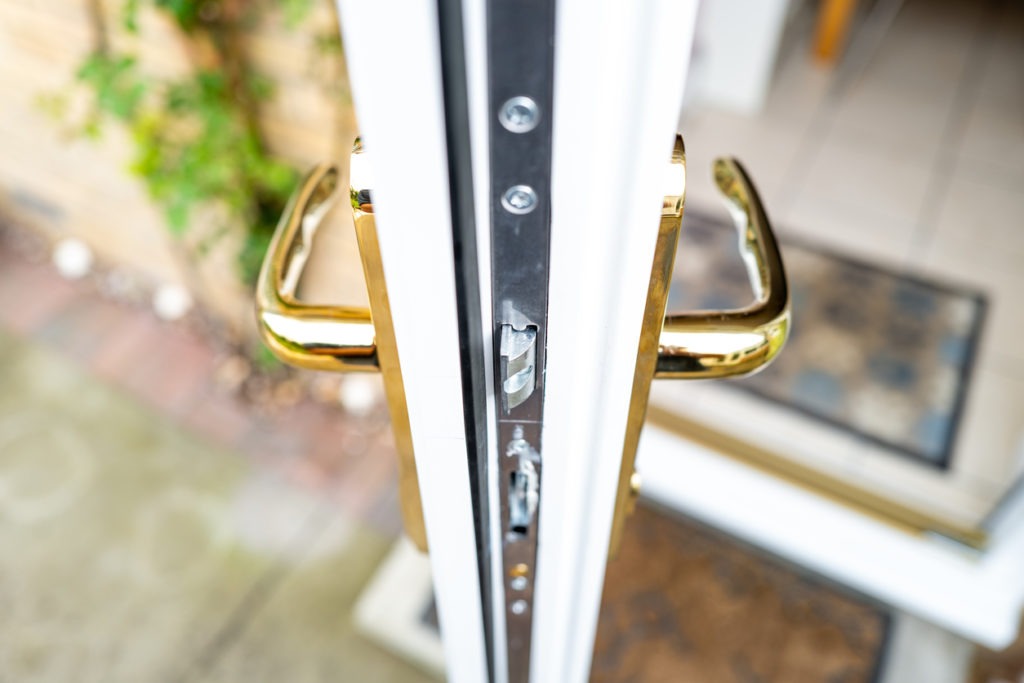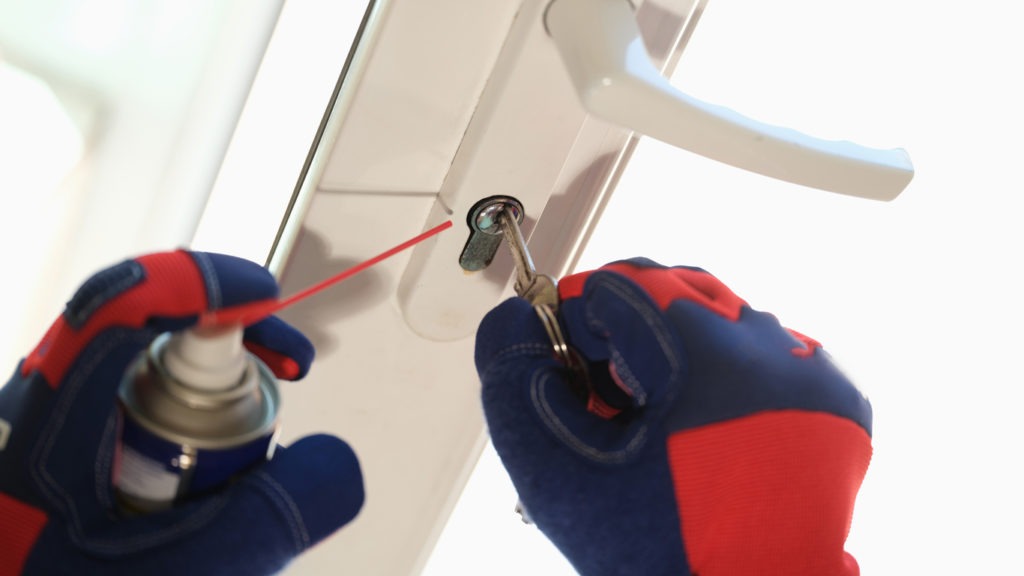Does your door squeak whenever you open it?
The door has nuts, screws, roller bearings, springs, and other parts. After all, hinges are the usual suspects of noise-making components on doors. Still, they are not the only things you should inspect. Some door handles also make squeaking sounds. If you have a sliding door, you might want to examine also the rails. Lubricating these parts every year should cure any noise problems.
When purchasing a door lubricant, you need to ensure that it can penetrate the grime and coat even on the innermost surface of the door hinge’s mechanism. If your door is to continue functioning effectively, this is essential.
Lubricants are greasy or oily substances to keep door hinges, screws, screw heads, and similar parts lubricated. It is required that doors and hinges should be lubricated every six months to a year, depending on the type of door and its level of use.
Here are a few reasons why doors and hinges need lubrication.
1. Serve as Protective Coating
Lubricants prevent the door parts from corroding early and experiencing more friction. It serves as a protective coating against corrosion and contamination.
A lubricant does this when it forms a protective film on metallic machine parts. The film blocks the direct contact of metal with oxygen in the air so that the metal cannot oxidize.
2 Reduce Wear
Lubricant reduces friction and enables the components to slide smoothly against each other. The application forms a thin layer of film between the metal surfaces, helping prevent abrasion as the components come into metal-to-metal contact. If you reduce friction through lubrication, you also reduce wear.
3. Serve as Seals
Lubricants serve as seals in machines in two ways. First, lubricants can seal themselves into the place where it is needed. Second, it can seal out dirt and other contaminants from the contact areas.
4. Solve a Squeaky Door Problem
A squeaky door is a problem that will keep on reminding you every time someone opens the door, and if that is in a busy day part of your house or office, that is a lot to suffer.
Inadequate or no lubrication makes the hinges creak, building-up dirt or dust between the metal surfaces of the hinge and the hinge pin. It is this friction and rubbing of metal on metal that causes the squeaking sound. Cleaning and lubrication are the primary efforts to prevent a squeaky door.
5. Protect Against Water and Rust
Lubricating also protects against water and rust. The water-resistant element within modern lubricants will deter water from accumulating on the hinges. Even sliding glass patio doors need lubrication. Though, they do not have the greasing done on the hinges because they do not have one. But greasing their upper and lower rollers will prevent resistance against smooth sliding.
6 . Prevent Locked Out
Some people have doors with an old-fashioned lock and key. If you fail to lubricate the lock, it could rust. Next time you put the key in the lock, you will meet resistance. Avoid lock-outs and lubricate the lock at the same time you perform your other lubrication tasks.
In addition to providing lubrication for door hardware, this step prevents freezing in cold weather. A good time to schedule lubrication is just before cold weather starts.
Things to Consider Before Buying Lubricants on Doors and Hinges
1. Lubricant Composition
There are lots of lubricant formulas, but the composition of the purchased lubricant should suit the door hinges you intend to grease. Silicone, lithium grease, and graphite are known to be the best ingredients in a lubricant formula, but each has its pros and cons.
Checking the composition of your doors and hinges will serve its purpose in lubricating your hinges.
- Silicone often comes in spray cans with detachable nozzles. It is the most widely available and easy to use for greasing door hinges. Generally, silicone lubricants are free from mineral oil and grease then they can work on any material. However, it does tend to collect dust and dirt.
- Lithium grease typically comes in tubes or spray cans. It lasts longer than silicone and is best for metal hinges. But they also work just fine for wooden doors. Cold weather can cause it to solidify, but it works very well in hot temperatures and is dust-resistant.
- Graphite is best suited for lubrication in high humidity and high temperatures. It essentially coats the parts you place it on and effectively reduces friction. However, it can leave some dark, smudge-like stains on carpets and woodwork. This type of lubricant does not attract much dust and dirt. These lubricants are better for shops and garage doors.
2. Safety
Avoid buying severely harmful lubricants; otherwise, carry out the application process under strict care so that neither you nor your precious interior gets harmed. Though all lubricants house strong chemicals to make up a potent greasing and rust-preventing solution, many light options react against certain conditions like marine pressure, humidity, and cold.
3. Hinge Type
The type of hinge may determine which product to use. Some lubricants are better suited for particular hinges or areas than others, and choosing the right type does matter.
When oiling interior room doors or cabinet hinges, you will probably avoid making a mess. That means that you will likely choose a silicone-based lubricant.
Many of the best lubricants for door hinges not only silence squeaks but also protect against corrosion. Folks who live in damp, humid environments or near bodies of salt water may find formulas designed for protection purposes, regardless of the ingredients.
4. Packaging and Application Type
The two most common methods for applying lubricant to a hinge are spraying or squeezing the lubricant from its tube. Naturally, the different varieties have different packaging and application styles. Choose a good deal that fits your needs and criteria. If you are purchasing lubricants from a reputable vendor, consult with one of their specialists to determine the application type that will be most beneficial.
5. Cost
To calculate the real cost of a lubricant, don’t just look at the price tag on the container. Take that number and compare it to the costs for maintenance requirements, handling, service life, and eventual disposal, because these costs should be considered essential parts of any decision.
In conclusion, lubrication is just one maintenance task your door and hinges need. Keeping the life of your door hinges and eliminating that squeakiness or stickiness only requires a few tools and minutes of your time. Timely door and hinges maintenance, regular cleaning, and lubrication of mechanisms will significantly prolong their service life.



